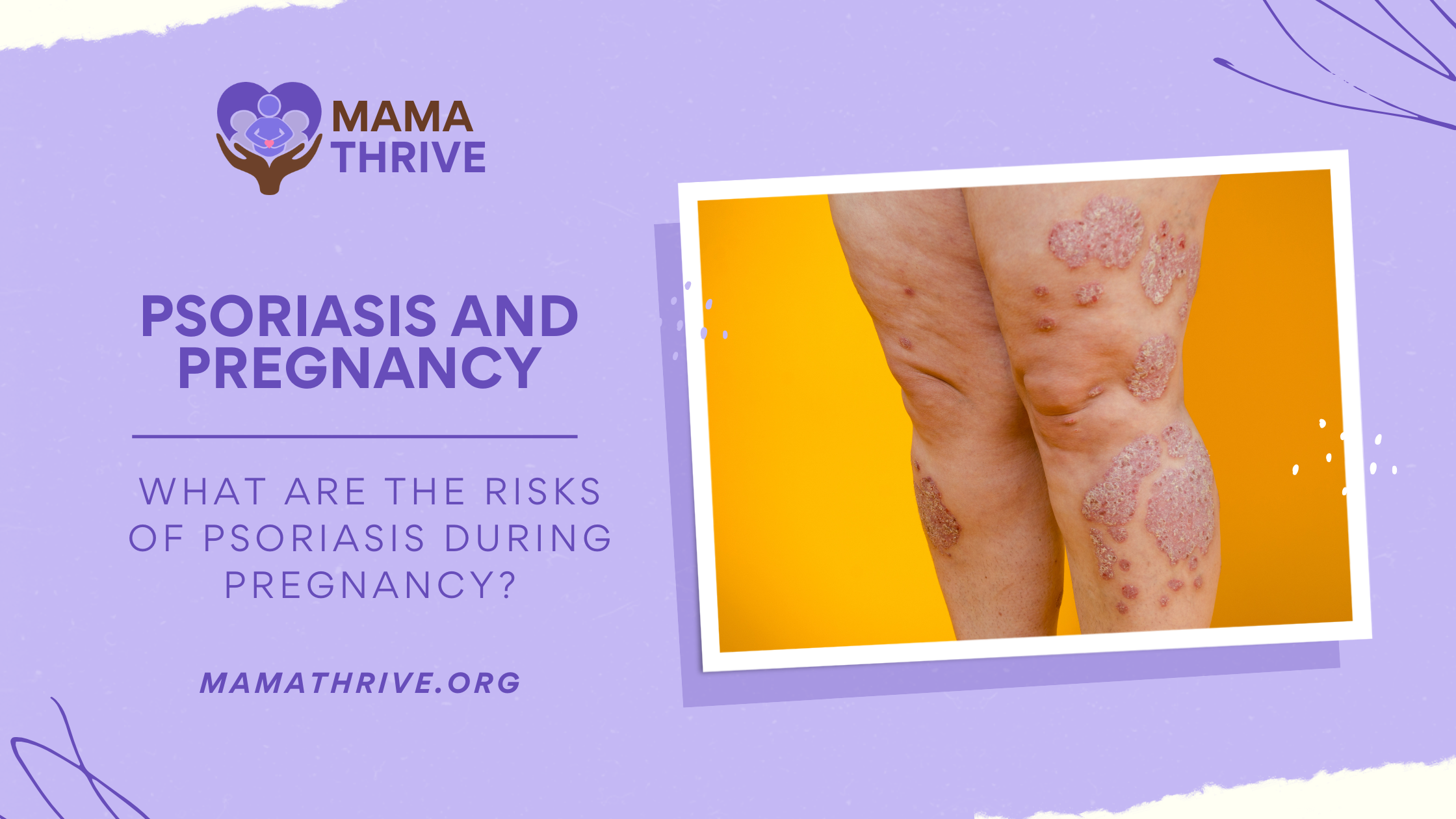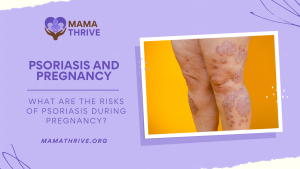Psoriasis is a chronic autoimmune condition that affects the skin, causing red, scaly patches that can be itchy and painful. For expectant mothers, managing psoriasis during pregnancy can be particularly challenging. While pregnancy often brings about many changes in the body, understanding how psoriasis interacts with these changes is crucial for ensuring both maternal and fetal health. This article explores the potential risks of psoriasis during pregnancy and provides insights on how to manage the condition effectively.
Understanding Psoriasis and Pregnancy
Psoriasis is a chronic, inflammatory skin condition that affects approximately 2-3% of the adult population in the United States. It is characterized by an overactive immune system that triggers an accelerated growth cycle of skin cells. This leads to the development of thick, red, scaly patches on the skin that can be itchy and painful. The condition is not only physically uncomfortable but can also have significant psychological impacts due to its visibility and chronic nature.
How Psoriasis Affects the Immune System
In individuals with psoriasis, the immune system mistakenly attacks healthy skin cells, causing them to proliferate rapidly. Normally, skin cells replace themselves every 28 to 30 days, but in psoriasis, new cells form in days rather than weeks. This rapid turnover results in the buildup of dead skin cells on the surface, forming the characteristic plaques.
Psoriasis and Hormonal Changes in Pregnancy
Pregnancy induces significant hormonal changes in a woman’s body, which can affect psoriasis in various ways. Estrogen and progesterone levels rise dramatically during pregnancy, and these hormones can have immunomodulatory effects. For some women, these hormonal shifts lead to an improvement in psoriasis symptoms, potentially due to the anti-inflammatory effects of increased estrogen. However, others might experience a worsening of their condition.
Impact on Maternal Health
While psoriasis itself is not directly harmful to pregnancy, it can affect a pregnant woman’s overall health and well-being. Severe psoriasis can be associated with other health conditions, such as cardiovascular disease, diabetes, and obesity, which can complicate pregnancy. Additionally, the physical and psychological burden of managing a chronic condition can add stress to an already challenging time.
If you’re struggling with the risks of psoriasis during pregnancy, our maternal telehealth program can help you.
Risks Associated with Psoriasis Treatments
One of the significant concerns during pregnancy is the management of psoriasis treatments. Many standard treatments for moderate to severe psoriasis are not safe for use during pregnancy due to their potential teratogenic effects (causing birth defects) or other risks to the fetus. For example:
- Methotrexate and Acitretin: These systemic medications are known to cause serious birth defects and must be discontinued well before conception.
- Biologics: While some biologic drugs (such as TNF inhibitors) can be used during pregnancy, they should be prescribed with caution and under strict medical supervision. The safety of biologics in pregnancy is an area of ongoing research, and decisions should be made on a case-by-case basis.
Potential Risks of Psoriasis During Pregnancy
- Flares and Hormonal Changes: Hormonal changes during pregnancy can significantly impact psoriasis. Some women may experience a reduction in symptoms, while others might see a worsening of their condition. According to the National Institute of Health (NIH), about 50% of pregnant women with psoriasis report an improvement in their symptoms, while 20% report a worsening. Flare-ups can lead to increased discomfort and stress, which are not ideal during pregnancy.
- Impact on Fetal Development: While psoriasis itself is not known to directly affect fetal development, severe cases and certain treatments may pose risks. For instance, systemic treatments such as methotrexate and acitretin are contraindicated during pregnancy due to their potential teratogenic effects, meaning they can cause birth defects. The American Academy of Dermatology (AAD) advises that these medications be discontinued well before conception.
- Increased Risk of Complications: Studies have shown that women with moderate to severe psoriasis may have an increased risk of pregnancy complications such as preterm birth, low birth weight, and preeclampsia. The Journal of the American Academy of Dermatology highlights that controlling psoriasis severity is crucial to minimizing these risks.
- Mental Health Concerns: The psychological impact of psoriasis should not be underestimated. Stress and anxiety can exacerbate psoriasis symptoms, creating a vicious cycle. The Centers for Disease Control and Prevention (CDC) emphasizes the importance of mental health care during pregnancy, as maternal stress can negatively impact fetal development and increase the risk of postpartum depression.
Managing Psoriasis During Pregnancy
- Consulting Healthcare Providers: It is essential for pregnant women with psoriasis to work closely with their healthcare providers, including dermatologists and obstetricians. They can provide personalized treatment plans that consider both the safety of the mother and the baby. The NPF recommends regular prenatal visits to monitor both psoriasis and pregnancy health.
- Safe Treatment Options: Topical treatments such as moisturizers, corticosteroids, and vitamin D analogs are generally considered safe during pregnancy. For more severe cases, phototherapy (UVB light therapy) is an effective and safe option. The AAD advises against the use of systemic treatments known to cause birth defects and encourages the use of alternative therapies.
- Lifestyle Modifications: Maintaining a healthy lifestyle can help manage psoriasis symptoms. This includes a balanced diet, regular exercise, and stress reduction techniques such as yoga and meditation. The CDC also highlights the importance of avoiding smoking and alcohol, as these can exacerbate psoriasis and harm fetal development.
Conclusion
Managing psoriasis during pregnancy requires a careful and informed approach. By understanding the potential risks and working closely with healthcare providers, expectant mothers can effectively manage their condition while ensuring the health and safety of their babies. Regular monitoring, safe treatment options, and lifestyle modifications are key components of a successful management plan. With the right support and resources, women with psoriasis can navigate pregnancy with confidence and peace of mind.





